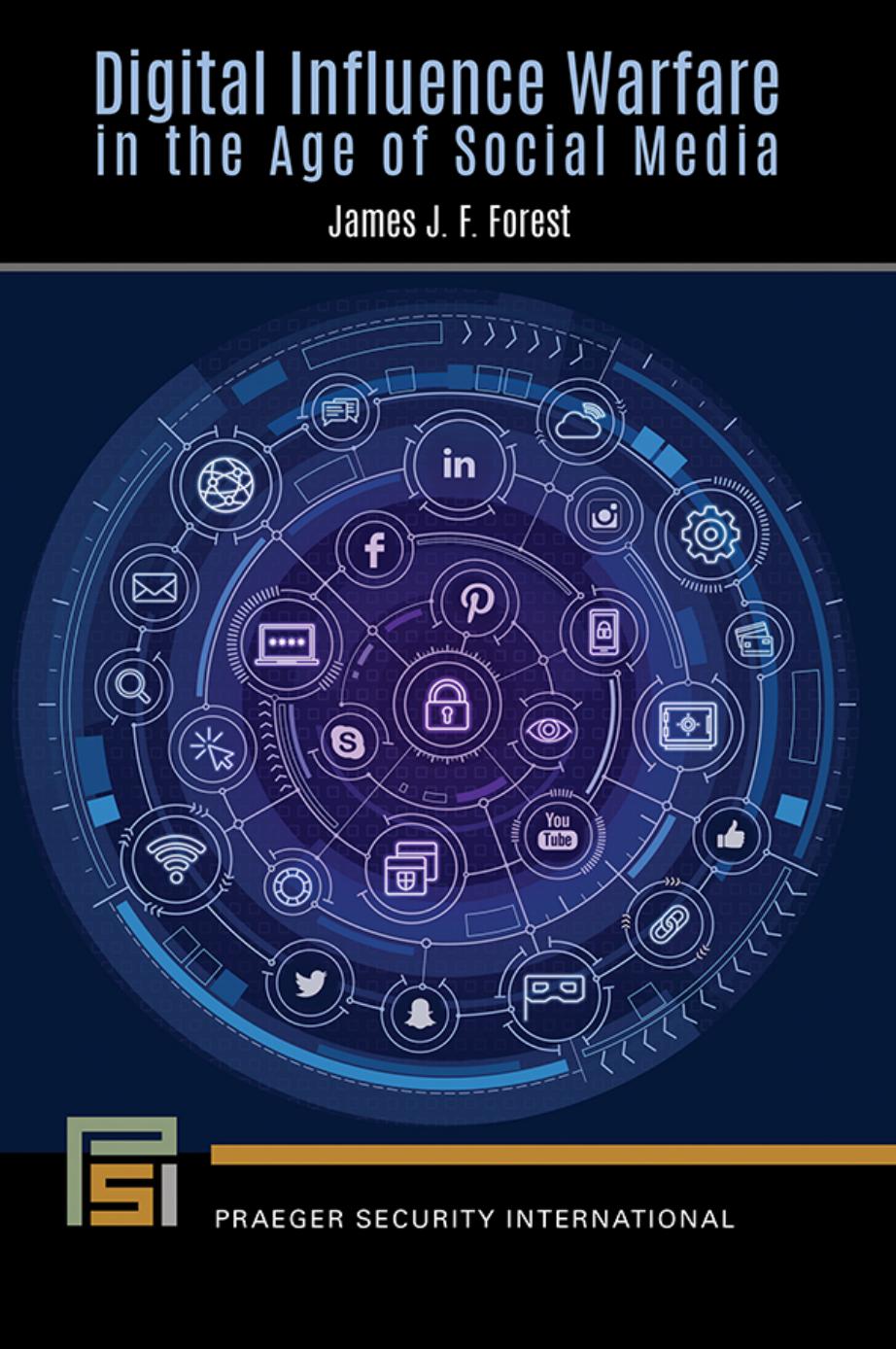Digital Influence Warfare in the Age of Social Media by Forest James J. F.;

Author:Forest, James J. F.;
Language: eng
Format: epub, pdf
Publisher: ABC-CLIO, LLC
Published: 2021-08-02T16:00:00+00:00
Repetition
Finally, another effective way to ensure the impact of a message is repetition. This is something well known in the world of marketing psychologists, and educators have also found that student learning is enhanced through repetition. Instead of trying to use compelling arguments in an appeal to the targetâs logic, simply repeating something over and over leads them to perceive that there must be something to it. Calling someone a derogatory nickname repeatedly will have an impact, over time, on how others view that person. This is why Trump would choose a derogatory nickname for a political opponentâcrooked Hilary, Lying Ted, Sleepy Joeâand repeat it at every opportunity. Over time, his supporters latched onto that characterization, as did other listeners, influencing their perceptions of that candidate.
As Pratkanis and Aaronson explain, the power of repetition in propaganda was well understood by Joseph Goebbels, the head of the Nazi propaganda ministry. His propaganda crusades were based on a simple observation: What the masses term truth is that information which is most familiar. As Goebbels put it: âThe rank and file are usually much more primitive than we imagine. Propaganda must therefore always be essentially simple and repetitious. In the long run, only he will achieve basic results in influencing public opinion who is able to reduce problems to the simplest terms and who has the courage to keep forever repeating them in this simplified form despite the objections of intellectuals.â According to Goebbels, the repetition of simple messages, images, and slogans creates our knowledge of the world, defining what is truth and specifying how we should live our lives.132
The way this connects to the previous discussion about an individualâs information processing is called âfluency.â133 Basically, people are more likely to believe something to be true if they can process it fluently. The information âfeels right,â so it is deemed believable by the target. In other words, easy-to-understand information is more believable, because itâs processed more fluently. This is why repetition is so powerful: if youâve heard this information before, you process it more easily this time, and in turn, this fluency makes you more likely to believe it. And if the information is repeated multiple times, this increases the fluency effect. Further, even when the information is proven to be false, the amount of repetition of the original claim will still lead individuals to believe it.134
Download
Digital Influence Warfare in the Age of Social Media by Forest James J. F.;.pdf
This site does not store any files on its server. We only index and link to content provided by other sites. Please contact the content providers to delete copyright contents if any and email us, we'll remove relevant links or contents immediately.
Sass and Compass in Action by Wynn Netherland Nathan Weizenbaum Chris Eppstein Brandon Mathis(7399)
Grails in Action by Glen Smith Peter Ledbrook(7291)
Secrets of the JavaScript Ninja by John Resig Bear Bibeault(5953)
Kotlin in Action by Dmitry Jemerov(4634)
Mastering Azure Security by Mustafa Toroman and Tom Janetscheck(3017)
Learning React: Functional Web Development with React and Redux by Banks Alex & Porcello Eve(2833)
WordPress Plugin Development Cookbook by Yannick Lefebvre(2583)
Mastering Bitcoin: Programming the Open Blockchain by Andreas M. Antonopoulos(2506)
The Art Of Deception by Kevin Mitnick(2295)
Drugs Unlimited by Mike Power(2189)
Kali Linux - An Ethical Hacker's Cookbook: End-to-end penetration testing solutions by Sharma Himanshu(2096)
Writing for the Web: Creating Compelling Web Content Using Words, Pictures and Sound (Eva Spring's Library) by Lynda Felder(2067)
SEO 2018: Learn search engine optimization with smart internet marketing strategies by Adam Clarke(2017)
JavaScript by Example by S Dani Akash(1947)
DarkMarket by Misha Glenny(1844)
Wireless Hacking 101 by Karina Astudillo(1843)
Full-Stack React Projects by Shama Hoque(1768)
Social Selling Mastery by Jamie Shanks(1746)
Hack and HHVM by Owen Yamauchi(1671)
